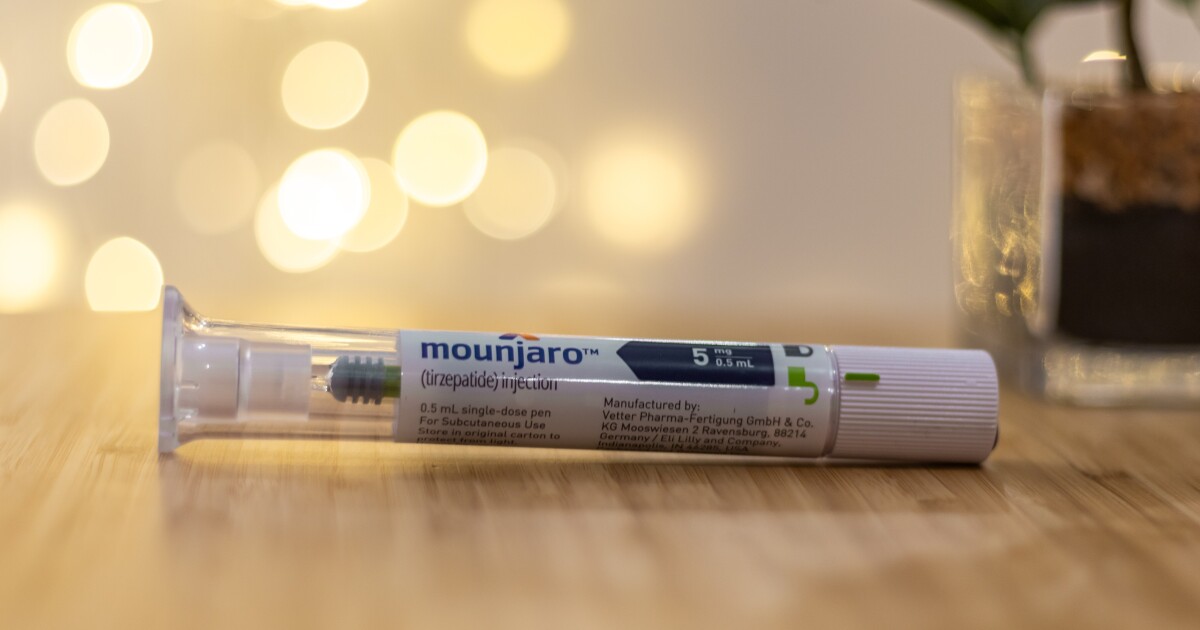Health
Weight Loss Drugs Transform Consumer Spending Habits

Weight loss medications such as Wegovy and Zepbound are altering not only individual health but also consumer shopping behavior. A recent analysis conducted by PwC and published in the Harvard Business Review reveals that these glucagon-like peptide-1 (GLP-1) drugs are prompting users to reduce grocery spending while opting for healthier food choices.
The study examined the purchasing habits of over 11,000 households in the United States. Findings indicate that grocery expenses dropped by 6% to 8% within the first year for households where a GLP-1 user was the primary food purchaser. This shift signifies a broader trend toward healthier eating patterns among those using weight loss medications.
Changes in Dining and Retail Habits
Beyond grocery shopping, users of GLP-1 medications are also altering their dining habits. The report shows a decline in fast food expenditures, balanced by increased spending at full-service restaurants. This shift suggests that as consumers prioritize health, they are willing to invest more in dining experiences that align with their new lifestyles.
Interestingly, the impact of weight loss drugs extends to apparel choices as well. Users tend to purchase approximately 4% to 5% more clothing within six months of starting treatment. This increase can be attributed partially to the need for new sizes but also reflects a boost in consumer confidence.
The trend is not limited to food and clothing; it also influences travel preferences. More individuals are now gravitating towards wellness-focused vacations, emphasizing the broader implications of these medications on lifestyle decisions.
Implications for the Market
The analysis indicates that companies across various sectors may need to adapt their strategies to align with these shifting consumer behaviors. Retailers, especially in the grocery and apparel markets, may find opportunities to cater to a more health-conscious audience.
As the popularity of GLP-1 drugs continues to rise, their influence on spending patterns is likely to grow. With major pharmaceutical companies like Eli Lilly working to bring more weight loss solutions to market, understanding these changes will be crucial for businesses aiming to thrive in this evolving landscape.
The findings emphasize a significant intersection between health and consumer behavior, underscoring the potential for weight loss medications to drive economic shifts. As more people seek these treatments, the implications for shopping habits and lifestyle choices will be profound and far-reaching.
-

 Business1 week ago
Business1 week agoIconic Sand Dollar Social Club Listed for $3 Million in Folly Beach
-

 Politics1 week ago
Politics1 week agoAfghan Refugee Detained by ICE After Asylum Hearing in New York
-

 Health1 week ago
Health1 week agoPeptilogics Secures $78 Million to Combat Prosthetic Joint Infections
-

 Science1 week ago
Science1 week agoResearchers Achieve Fastest Genome Sequencing in Under Four Hours
-

 Lifestyle1 week ago
Lifestyle1 week agoJump for Good: San Clemente Pier Fundraiser Allows Legal Leaps
-

 Health1 week ago
Health1 week agoResearcher Uncovers Zika Virus Pathway to Placenta Using Nanotubes
-

 World1 week ago
World1 week agoUS Passport Ranks Drop Out of Top 10 for First Time Ever
-

 Business1 week ago
Business1 week agoSan Jose High-Rise Faces Foreclosure Over $182.5 Million Loan
-

 Science1 week ago
Science1 week agoMars Observed: Detailed Imaging Reveals Dust Avalanche Dynamics
-

 Entertainment1 week ago
Entertainment1 week agoJennifer Lopez Addresses A-Rod Split in Candid Interview
-

 Top Stories7 days ago
Top Stories7 days agoChicago Symphony Orchestra Dazzles with Berlioz Under Mäkelä
-

 World1 week ago
World1 week agoRegional Pilots’ Salaries Surge to Six Figures in 2025









